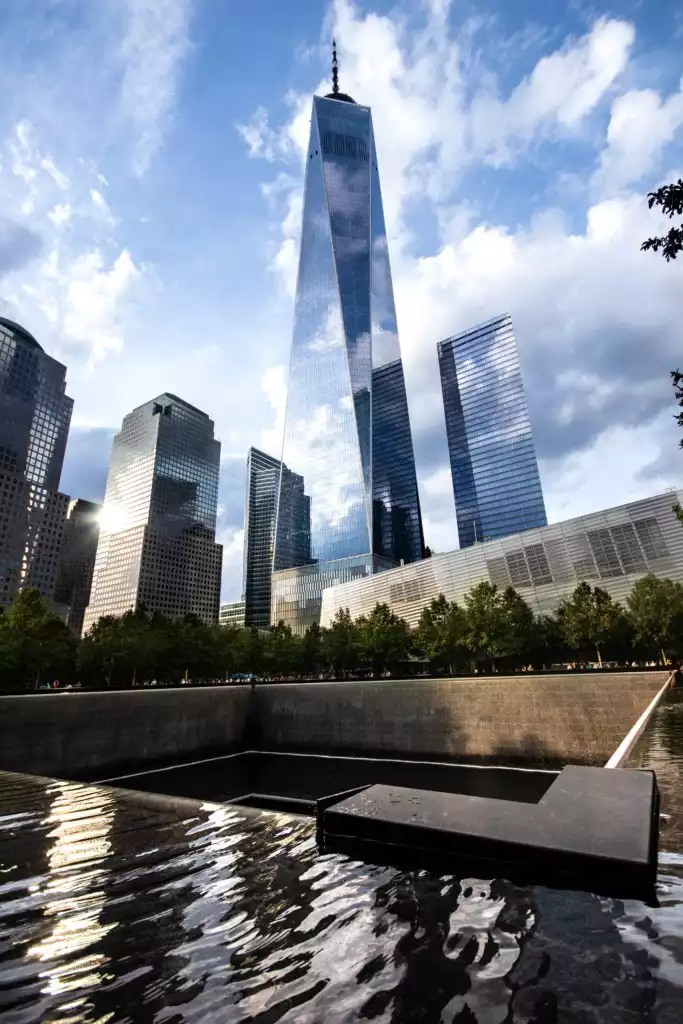
As the anniversary of the Sept. 11th terrorist attacks nears, I find myself feeling off. Sad, solemn, uneasy, and down are all words that come to mind but just don’t do this feeling justice, a feeling that all Americans know too well and few can put into words. I try not to focus on the sadness of that day, but on the unity and togetherness that followed, especially in recent years when it feels like we have grown further apart as a country. For me, when I focus on these moments, I think of the communities that organized fundraisers and bake sales, American flags flying proudly from porches, and American sports. When Flight 11 hit the north tower, the world seemed to stop. Flights and transit lines paused, work stopped for the day, schools let out early and sporting events were canceled. When they resumed, the sporting events that followed signaled that our country was not only moving forward but doing so together.
On Sept. 17, 2001, in St. Louis, despite being 77 years old and undergoing treatment for lung cancer, Cardinals announcer Jack Buck took the field to recite a tribute poem he wrote titled “For America.” He said, “If we are involved, We shall be resolved, To protect what we know is right.” On Sept. 21, 2001, the Mets hosted the Braves for the first baseball game back in New York since the attacks. It was the bottom of the 8th inning and the Mets were down 2-1 when Mike Piazza hit a 2-run home run that won the game for the New York ball club, a victory the city so badly needed. On Oct. 30, 2001, in the first home game back in Chicago, the Cubs superstar “Slammin’ Sammy” Sosa hit a home run as he had done many, many times before. Only this time, he rounded the bases waving an American flag. Lastly, perhaps the most memorable, was the first pitch in game 3 of the 2001 World Series. President George W. Bush walked out to the mound at Yankee Stadium and, before tossing a perfect throw right over home plate, he gave a big thumbs up to the crowd, seemingly saying “we will be okay.”
The baseball season was in one of its most competitive months when the terrorist attaches occurred and, when the games resumed, it felt as though the country was renewed with it. When the New York Rangers kicked off their NHL season on Oct. 7, 2001, at Madison Square Garden, hockey legend Mark Messier stood out on the ice for the pre-game ceremonies wearing an FDNY helmet that belonged to Chief Raymond Downey, one of New York City’s bravest who perished at ground zero. While performing the half-time show at Super Bowl XXXVI on Feb. 3, 2002, U2 sang “The Streets Have No Name” with the names of every life lost displayed behind them. It is also fitting that a team called “The Patriots” went on to win the Super Bowl that year. The unifying power of sports in light of the events of 9/11 was even the focus of a 2018 exhibit, “Comeback Season,” mounted by the 9/11 Memorial and Museum.
Many people view sports, especially contact sports such as football and hockey, as pointless and barbaric. I’ve long been a proponent that there is more to sporting events than the statistics and scores. They allow us to form connections with others and are heavily ingrained in our history as a nation. After 9/11, the country was lost. Sports helped to distract us, unite us and ultimately heal us. So, this year on 9/11, I will be focusing on these moments of extreme awe and, amid the sadness of the day, allow sports to lead the way.
Photo by Julien DI MAJO on Unsplash
